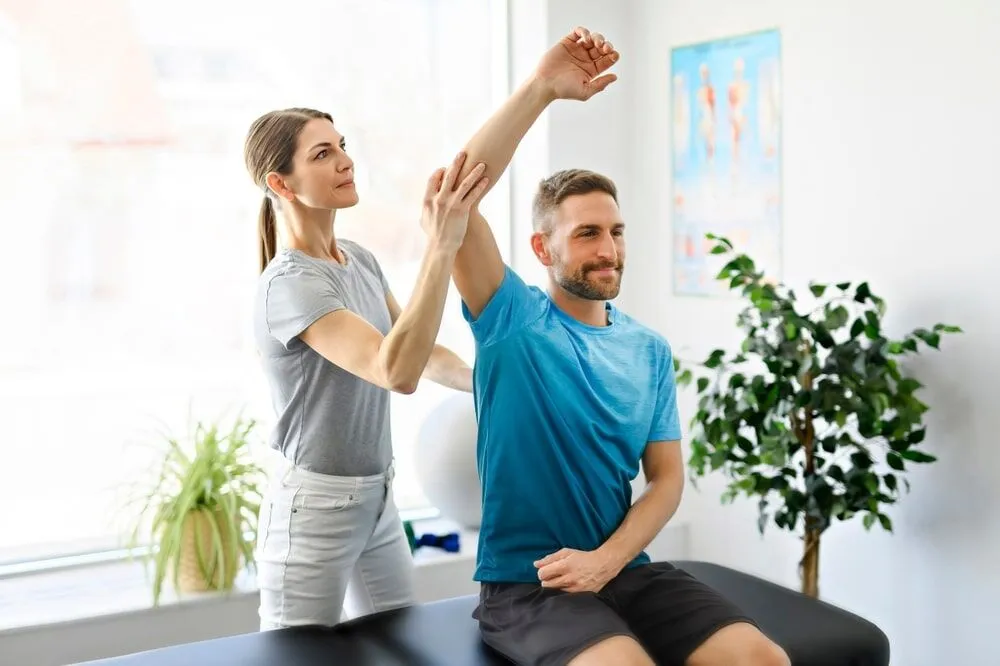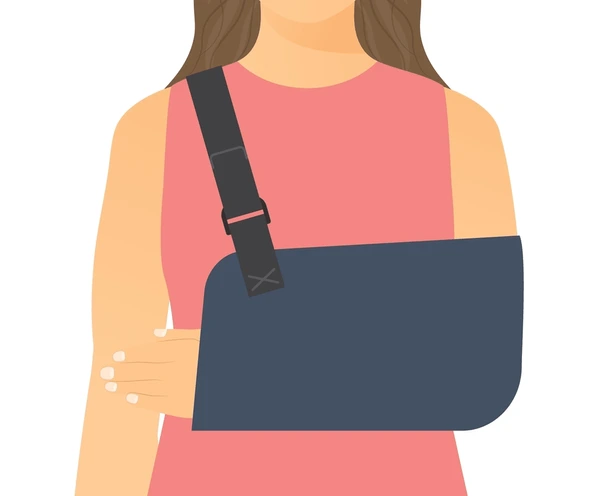According to research studies, the number of Americans above the age of 65 is expected to double to 71 million by the year 2030. There are more people above the age of 50 in the work force today than ever before. Baby Boomers and Generation X understand that staying active is the key to longevity and are taking to physical fitness and sports to help control problems such as heart disease, diabetes, obesity, and osteoporosis. However, with advancing age comes increasing risk of musculoskeletal injuries such as rotator cuff injury.The shoulder enjoys the highest range of motion when compared to any other joint in the human body. This results in amazing capabilities, but also the potential for injury.Keeping the bones of the shoulder joint in place are the 4 rotator cuff muscles that stabilize the joint during arm movement across multiple planes of motion. As you grow older, age-related wear and tear can increase the risks of rotator cuff injury, especially in people over the age of 50 years. According to research studies, rotator cuff tears are present in about 50% of people by age 65 and tear sizes increase with age.Accurate diagnosis of the rotator cuff injury and appropriate treatment by a shoulder specialist will resolve the problem, but you need to take certain precautions to avoid re-injuring the shoulder.Here are 5 tips for returning to sports after rotator cuff injury:
- Get clearance from your doctor: Whether you have received surgical or nonsurgical treatment, check with your doctor to make sure the shoulder is fully healed.
- Ease into your shoulder activities: Don’t expect to return to the same level of play immediately. Take the time to gradually build up your intensity. Full recovery from rotator cuff repair often takes 6 months for instance.
- Work on strengthening your shoulder muscles: Continue to perform the physical therapy exercises you have learned during your recovery phase. Strong shoulder muscles will help take some of the stress off your joint.
- Always warm-up and cool down: Simple range of motion exercises will get the blood flowing into the shoulders. Warmed up muscles and tendons are less likely to get injured or torn. After your game, take the time to do some light stretches to help reduce muscle soreness.
- Don’t play through the pain: Stop your activity if the shoulder pain returns at any point of time. Rest, application of ice, and use of over-the-counter pain medications may help relieve the symptoms. Consult your doctor if the pain returns with activity.
Following the above-mentioned guidelines will help you stay injury free and active allowing participation in sports well into your 50s and beyond.Dr. Patrick Denard has been voted one of the top 20 Shoulder Surgeons in North America, and is the most widely published shoulder specialist in Oregon. Dr.Denard is committed to providing the highest level of Orthopedic care to his patients. Dr. Denard has advanced arthroscopy training and is able to perform the vast majority of shoulder procedures in a minimally invasive fashion, including all types of rotator cuff repairs and instability repair. These techniques allow him to repair tears that some consider “irreparable.” Providing every patient with advanced medicine and compassionate care each and every time.
Similar posts



